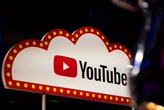When it comes to work, we might think about being engaged and happy as one and the same. Being engaged and happy at work seem to go hand-in-hand and phrases like “happy employees create happy customers” have become truisms in many of our organizations. Although they’re related, engagement and happiness are meaningfully different and for the many Gen Z employees entering the workforce, engagement might actually be the better target.
Why organizations focus on engagement
The American Psychological Association (APA) defines happiness as “an emotion of joy, gladness, satisfaction, and well-being.” In other words, happiness is a short-term, fleeting state. The APA points out, however, that people often use the word “happiness” to refer to a more stable state; a lasting sense of fulfillment and contentment. The statement “I want to be happy,” for example, usually means I want to be happy now but long-term, too.
Between the two, organizations more commonly focus on employee engagement, and for good reason. When employees are engaged, they perform better, go out of their way to help coworkers and customers, and tend to stay with the company longer. Naturally, when employees are engaged, they’re more likely to be happy than not. But being momentarily happy at work doesn’t mean someone’s engaged.
When organizations measure engagement, they aim to measure the general state of employees, not fleeting feelings. Employee emotions, like happiness, can change like the weather, but being engaged is more like a season—an attitude that remains relatively stable over, say, several months.
Much has been said about managing Gen Z, the youngest generation to enter the workforce. But despite prevailing headlines about their laziness or entitlement, our study of over 35,000 global employees showed that 18- to 24-year-olds are the most engaged age group. They are also highly motivated to challenge the status quo and introduce new ideas into the workplace. While their novel ideas may come off to leaders as reflecting unhappiness or entitlement, it might simply be a way they engage and contribute.
The pursuit of long-term happiness at work
When faced with challenges or the daily grind of work, it’s often tempting to pursue the path of least resistance, pushing off the hard work in front of us, and joining in on games and gossiping with coworkers. And yet, a continuous pursuit of momentary happiness at work is unlikely to lead to lasting fulfillment or contentment: the lasting happiness we all desire.
Consider conversations you’ve had with people more advanced in their careers. When they speak about their “glory days,” do they talk about times they slacked off and got nothing done? Not likely. They tend to talk about obstacles they overcame, friends they made, and their biggest wins: accomplishments earned through hard work and fueled by engagement.
People also tend to look back favorably upon challenging times at work and this propensity has well-known psychological roots. Those daily challenges that we face at work are indeed daunting, but over time, they become largely irrelevant, and what we hold onto and recall are our hard-earned triumphs and the people who supported us.
Triumphs in our careers are often the result of engagement, not the constant pursuit of immediate happiness. So if you are in search of long-term happiness in your work—a lasting sense of fulfillment and contentment—aim for engagement.
Four ways for Gen Z to take ownership of their engagement
Block off focus time and get into the flow of work. When we’re in a state of flow at work, we’re in the zone, completely immersed in our work, forgetting time and other distractions. Flow isn’t a passive state nor something that just happens. Schedule blocks of time for focus work, diving headfirst into a single project. Make this time sacred and publicly visible to your coworkers—this helps to keep you accountable and guilt-free.
Help out a coworker in need when they don’t expect it. Positive surprises are powerful and when you show a coworker that you’re willing to share their burdens and emotions, you start a powerful ripple of reciprocity. This is utterly counterintuitive when we’re busy at work, but it works. It will engage and invigorate you.
Publicly recognize a team member for exceptional work. Recognition is an extremely powerful motivator when it reinforces great behavior and performance. Much like helping coworkers, recognition tends to be reciprocated among coworkers. Don’t be stingy with peer recognition, but don’t dish it too loosely either, lest it lose its luster.
Share your ideas, but be realistic. One of the greatest strengths of Gen Z workers may very well be their outspokenness. Organizations today need this infusion of divergent thinking. So share your ideas, but when you do, remember that there is a bigger picture you can’t see yet, and be ready and willing to learn and adjust your mindset.
We often view employee engagement as a product of good managerial practices, which is true. But Gen Z employees can also take matters into their own hands. This is mutually beneficial to organizations and those who lean into owning their engagement. If long-term career happiness is your objective, engagement might be the ticket.







No comments